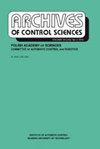Development of rapid and reliable cuckoo search algorithm for global maximum power point tracking of solar PV systems in partial shading condition
IF 1.1
4区 计算机科学
Q4 AUTOMATION & CONTROL SYSTEMS
引用次数: 7
Abstract
The solar photovoltaic output power fluctuates according to solar irradiation, temperature, and load impedance variations. Due to the operating point fluctuations, extracting maximum power from the PV generator, already having a low power conversion ratio, becomes very complicated. To reach a maximum power operating point, a maximum power point tracking technique (MPPT) should be used. Under partial shading condition, the nonlinear PV output power curve contains multiple maximum power points with only one global maximum power point (GMPP). Consequently, identifying this global maximum power point is a difficult task and one of the biggest challenges of partially shaded PV systems. The conventional MPPT techniques can easily be trapped in a local maximum instead of detecting the global one. The artificial neural network techniques used to track the GMPP have a major drawback of using huge amount of data covering all operating points of PV system, including different uniform and non-uniform irradiance cases, different temperatures and load impedances. The biological intelligence techniques used to track GMPP, such as grey wolf algorithm and cuckoo search algorithm (CSA), have two main drawbacks; to be trapped in a local MPP if they have not been well tuned and the precision-transient tracking time complex paradox. To deal with these drawbacks, a Distributive Cuckoo Search Algorithm (DCSA) is developed, in this paper, as GMPP tracking technique. Simulation results of the system for different partial shading patterns demonstrated the high precision and rapidity, besides the good reliability of the proposed DCSAGMPPT technique, compared to the conventional CSA-GMPPT.部分遮阳条件下太阳能光伏系统全局最大功率点跟踪的快速可靠布谷鸟搜索算法
太阳能光伏输出功率随太阳辐照度、温度和负载阻抗的变化而波动。由于工作点的波动,从已经具有较低功率转换率的光伏发电机组中提取最大功率变得非常复杂。为了达到最大功率工作点,应使用最大功率点跟踪技术(MPPT)。在部分遮阳条件下,非线性PV输出功率曲线包含多个最大功率点,而全局最大功率点只有一个。因此,确定全球最大功率点是一项艰巨的任务,也是部分遮阳光伏系统面临的最大挑战之一。传统的MPPT技术很容易被困在局部最大值中,而不能检测到全局最大值。用于跟踪GMPP的人工神经网络技术的一个主要缺点是使用了覆盖光伏系统所有工作点的大量数据,包括不同均匀和非均匀辐照情况、不同温度和负载阻抗。用于跟踪GMPP的生物智能技术,如灰狼算法和布谷鸟搜索算法(CSA)存在两个主要缺陷;如果它们没有得到很好的调谐,就会被困在局部MPP中,并且存在精度-瞬态跟踪时间复杂悖论。为了解决这些问题,本文提出了一种分布式布谷鸟搜索算法(DCSA),即GMPP跟踪技术。仿真结果表明,与传统的CSA-GMPPT相比,DCSAGMPPT技术精度高、速度快、可靠性好。
本文章由计算机程序翻译,如有差异,请以英文原文为准。
求助全文
约1分钟内获得全文
求助全文
来源期刊

Archives of Control Sciences
Mathematics-Modeling and Simulation
CiteScore
2.40
自引率
33.30%
发文量
0
审稿时长
14 weeks
期刊介绍:
Archives of Control Sciences welcomes for consideration papers on topics of significance in broadly understood control science and related areas, including: basic control theory, optimal control, optimization methods, control of complex systems, mathematical modeling of dynamic and control systems, expert and decision support systems and diverse methods of knowledge modelling and representing uncertainty (by stochastic, set-valued, fuzzy or rough set methods, etc.), robotics and flexible manufacturing systems. Related areas that are covered include information technology, parallel and distributed computations, neural networks and mathematical biomedicine, mathematical economics, applied game theory, financial engineering, business informatics and other similar fields.
 求助内容:
求助内容: 应助结果提醒方式:
应助结果提醒方式:


